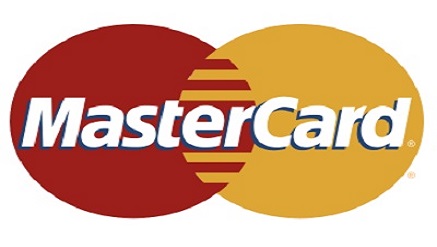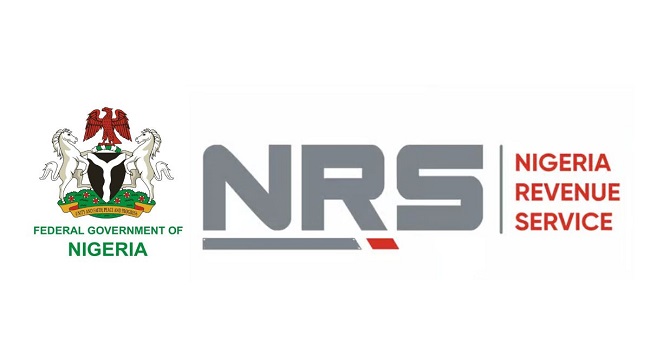E-Financial
MasterCard Rolls-out In-App Flight Payments Solution

Consumers booking flights through low cost airline Mango’s mobile apps can now make secure and convenient payments using MasterPass, MasterCard’s digital wallet service.
Travellers can pay for flights booked through the Mango mobile app, available on all major operating platforms (Android, Blackberry 10, iOS and Windows 8.1) by selecting MasterPass as the payment option, completing their purchase with a single touch without leaving the application.
This checkout process creates a seamless purchase experience, supported by the highest levels of security.
“Consumers want to shop and pay in a way that suits their lifestyle. Whether it’s in-store, online or on-the-go, the payment experience needs to be simple and fast, while being safe and secure,” says Mark Elliott, division president, MasterCard, South Africa. “This is the first MasterPass in-app feature to go live in South Africa. The evolution of the digital wallet from an e-commerce to an in-app channel enables consumers to adopt their preferred payment method.”
“Mango continually pursues innovation across its business and we remain the only African airline to offer mobile apps for booking and payment on the go. The addition of MasterCard’s innovative MasterPass product to our range of payment methods is a welcome addition to Mango’s existing wide payment method acceptance portfolio,” says Mango spokesperson, Hein Kaiser.
MasterPass allows consumers to store all their MasterCard or other branded credit or debit card information, and shipping and billing address details, securely in one place.
This means they can make secure online and in-app payments without the repeated hassle of entering these details each time they want to complete a transaction.
Before accessing the Mango app to pay with MasterPass, consumers need to download and install the MasterPass app on their mobile device, which is free for download from the iOS, Android, Windows or BlackBerry app stores.
Standard Bank is the first local bank to offer a digital wallet powered by MasterPass, but the service can be used by consumers who bank with any South African bank.
E-Financial
SEC Revokes Registration of Kensington Agro Trading Limited

Securities and Exchange Commission (SEC) has revoked the registration of Kensington Agro Trading Limited as a capital market operator with immediate effect.

In a public notice issued by the Commission, the regulator announced that Kensington Agro Trading Limited’s registration as a Commodity Broker/Dealer and Collateral Manager has been withdrawn, effectively stripping the company of its authority to operate within Nigeria’s capital market.
According to the notice, the revocation was carried out pursuant to the powers vested in the Commission under Section 61(6) of the Investments and Securities Act, 2025, as well as Rule 34(1) of the SEC Rules and Regulations 2013, as amended.
The SEC stated that the decision takes immediate effect and urged all stakeholders to take note of the development.
“Accordingly, commodity exchanges, the investing public, commodity traders, and all capital market stakeholders are advised to discontinue capital market-related dealings with the company,” the Commission said.
The directive means that Kensington Agro Trading Limited is no longer authorised to engage in any capital market activities under the regulatory oversight of the SEC. Market participants have been cautioned to avoid entering into transactions or maintaining business relationships with the firm in its former capacity as a registered operator.
While the notice did not specify the reasons for the revocation, such regulatory actions are typically taken in line with the Commission’s mandate to ensure compliance with extant laws, protect investors, and maintain market integrity.
The SEC, headquartered in Abuja, reiterated its commitment to upholding transparency, investor protection, and strict adherence to regulatory standards in Nigeria’s capital market.
The Commission’s action underscores its continued enforcement drive aimed at sanitizing the market and ensuring that only duly registered and compliant operators are permitted to function within the ecosystem.
Stakeholders and members of the public are encouraged to verify the registration status of capital market operators through official SEC channels before engaging in investment-related transactions.
E-Financial
NRS Targets N40trillion in Tax, Royalty Revenue in 2026

Nigerians’ commitment to paying taxes has produced historic results. In 2025, voluntary compliance propelled the Nigeria Revenue Service (NRS) to collect a record ₦28.3 trillion, exceeding its target of ₦25.2 trillion and setting the stage for an even more ambitious 2026.

Dr. Zacch Adedeji, the Executive Chairman of NRS, while hailing the development recorded in 2025, announced that the service is targeting ₦40.7 trillion in tax and royalty collections for 2026, a 44% increase over last year.
The projection reflects reforms consolidating petroleum and mineral royalties under the NRS, streamlining a process previously handled by over 60 federal agencies, including the Nigerian Upstream Petroleum Regulatory Commission and the Nigeria Customs Service.
“With legislative support, we are confident of achieving this,” Dr. Adedeji said at a stakeholders’ roundtable organized by the House of Representatives Committee on Appropriations in Abuja.
The reforms, anchored in the Nigeria Revenue Service Establishment Act, 2025, signed by President Bola Tinubu, formalized the NRS and launched the most comprehensive tax overhaul in decades. By consolidating fragmented revenue collection, the NRS has strengthened efficiency, reduced compliance burdens, and expanded the tax base, particularly in non-oil sectors.
Finance Minister Mr. Wale Edun emphasized that the reforms aim to reduce reliance on Ways and Means financing and unsustainable subsidy arrangements funded by the Nigerian National Petroleum Company Limited.
Meanwhile, Chairman of the House Committee on Appropriations, Rep. Abubakar Bichi, during the stakeholders’ roundtable organized by the House of Representatives Committee on Appropriations in Abuja, assured that legislative oversight will ensure credibility, transparency, and accountability in revenue collection and enforcement.
The NRS’s new mandate signals more consistent enforcement, reduced regulatory overlap, and closer scrutiny of non-oil sectors and mineral operators. For investors, the reforms indicate a centralized revenue administration and a broader, more reliable tax base, potentially reducing macroeconomic volatility if targets are met.
Dr. Adedeji, speaking at the Nigeria Deposit Insurance Corporation (NDIC) Annual Strategic Stakeholders Retreat, emphasized that Nigeria’s journey toward a one-trillion-dollar economy depends heavily on trust.
“Strong bank capitalization and effective enforcement give confidence to the system. When people know their funds are safe, whether one naira or billions, they are more willing to save, invest, and participate in nation-building,” he said.
The NRS has also strengthened collaboration with key stakeholders, including a courtesy visit from KPMG executives, who commended the leadership and timely implementation of new tax laws, pledging continued professional engagement in support of national economic growth.
In another strategic engagement, Dr. Adedeji and Minister of State for Finance, Dr. Doris Uzoka-Anite, met with Central Bank of Nigeria Governor, Olayemi Cardoso, to align fiscal and monetary policies, further promoting sustainable national development.
With strong momentum from 2025 and a clear vision for 2026, the NRS aims not only to boost domestic revenue but also to strengthen public trust, enhance compliance, and drive national development. As Dr. Adedeji emphasized, “Your compliance strengthens our economy and drives national development.”
Nigeria’s taxpayers can take pride in their role in this historic achievement, and in shaping the country’s economic future.
E-Financial
Nigeria’s Net Reserves Surge 50% to $34.8bn in 2025 – CBN Governor

Nigeria’s net foreign exchange reserves surged to $34.80 billion by end-2025, Central Bank Governor Olayemi Cardoso disclosed, marking a 50.58 percent rise of $11.69 billion from $23.11 billion in 2024.

CBN
The figure—a 772.18 percent leap or $30.81 billion improvement from 2023’s $3.99 billion—exceeds 2023’s gross reserves of $33.22 billion, signaling robust external financial buffers after adjusting for short-term liabilities like FX swaps and forwards.
Gross external reserves simultaneously grew from $40.19 billion in 2024 to $45.71 billion in 2025, up $5.52 billion, providing a truer gauge of capacity to meet immediate obligations.
Cardoso credited stronger external fundamentals, FX management transparency, and monetary reforms boosting investor confidence and exchange rate stability.
The CBN remains focused on reserve adequacy for macroeconomic balance and seamless FX operations. Cardoso noted in February 2026 that gross reserves continued climbing amid reform momentum.

 E-Financial3 days ago
E-Financial3 days agoIran-Israel-US Conflict and CBN’s FX Gains: A Stress Test for Nigeria’s Monetary Stability

 E-Financial3 days ago
E-Financial3 days agoMutual Benefits Assurance Reaffirms Full Regulatory Compliance, Enhanced Governance

 General News3 days ago
General News3 days agoJAMB Uncovers AI-Driven Fraud Targeting UTME Candidates, Warns Parents

 General News3 days ago
General News3 days agoSERAP Asks FCCPC to Investigate Google, Meta, Others over Alleged Rights Abuses

 Telecom2 days ago
Telecom2 days agoSunil Bharti Mittal Conferred GSMA Lifetime Achievement Award for Transforming Global Telecommunications

 News3 days ago
News3 days agoTeamApt, Awabah Partner to Boost Pension Drive for Nigerians

 News3 days ago
News3 days agoFlashChange CEO, Bidemi Oke, Urges Startups to Build Strong Governance Structures Early

 Telecom2 days ago
Telecom2 days agoWhy Digital Trust Matters: Secure, Responsible AI for African SMEs?














